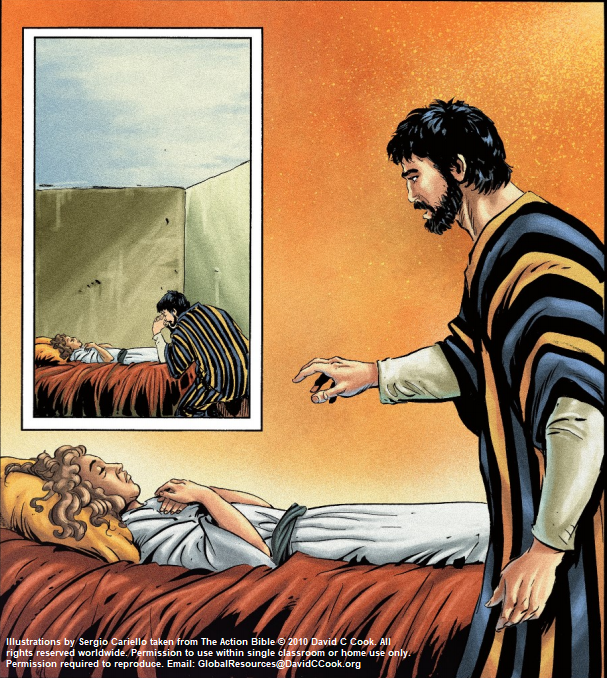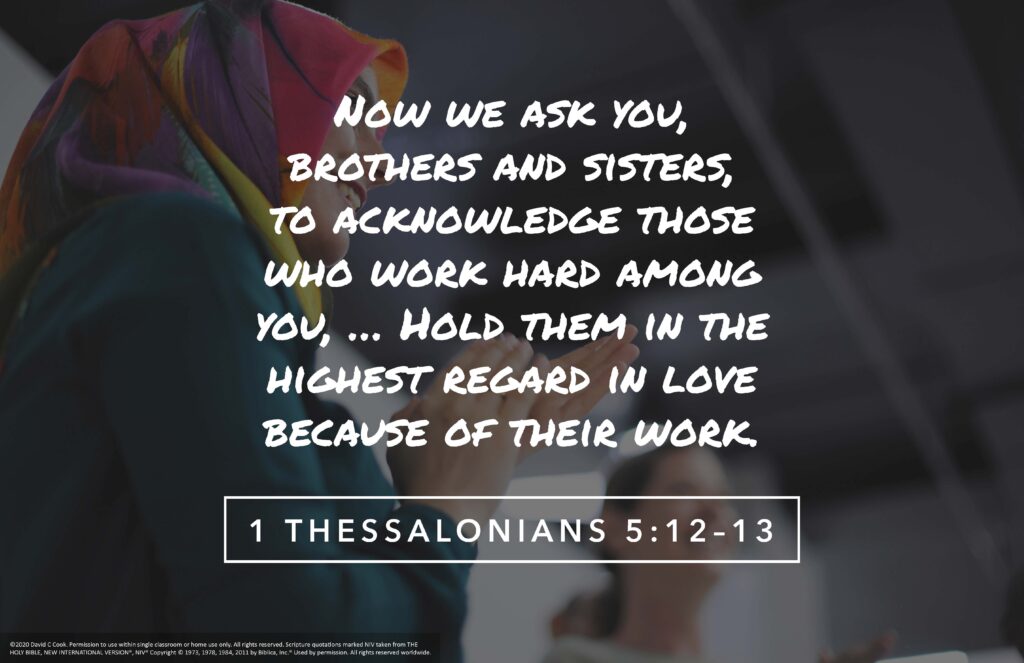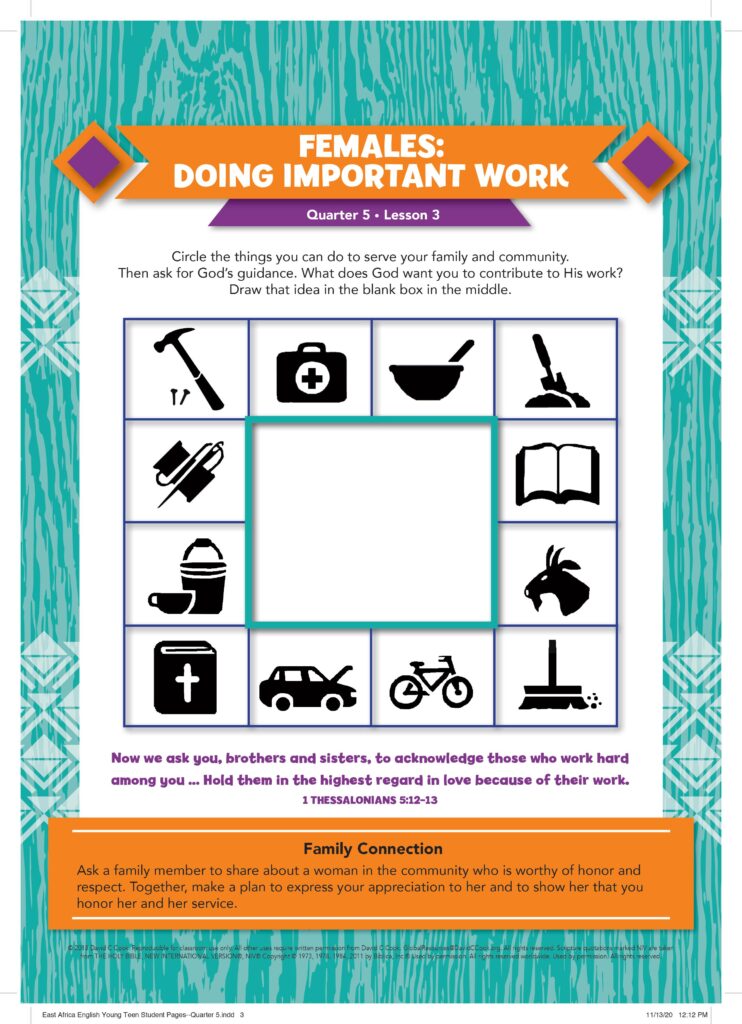During the lesson, the information for you to know is written in regular type, and what we suggest speaking or reading aloud to children is in bold. All resources for this lesson, including the Teacher Guide and Student Page, can be downloaded in a ZIP file by clicking on the following link:
In some lessons you will find "resource articles." These are articles written by experts from around the world to help equip you for your work with children and adolescents. Share them with parents or guardians if you consider it appropriate.
There is neither Jew nor Gentile, neither slave nor free, nor is there male and female, for you are all one in Christ Jesus.
Galatians 3:28
Our world is filled with discrimination. We judge others based on ethnic background, language, social class, and gender. We value others based on what they say or how they look. But God does not see others the way we do. In His eyes, those who believe in Him are all one—no matter how much money we have, no matter what tribe we belong to, no matter what church we attend, no matter if we are men or women. Jesus offers salvation for all—and God gives all of us the work of sharing His love and His message with the world.
Consider your own life. If you are a woman, what would your life be like without Christ? And what can you do to be a part of His work? If you are a man or a woman, how many women have shared God’s love with you? How many have shared in your spiritual growth? How would your life be different without them? Our place in God’s kingdom does not depend on our ethnic background, culture, language, or gender. It depends completely on God’s grace. So as you engage in His work, begin to see the world as He does—filled with men and women whom He values and treasures. Show those around you the respect and honour they deserve as His matchless creations. May God use you to make the world a little bit more like He desires it to be—a place where we are all one in Him.
Encourage the students to ask a family member to share about a woman in the community who is worthy of honour and respect. Then they can decide together on a way to honour this woman for her work for others.
Teacher Tip: If possible, email or text the Family Connection Card to the families of your students.
Welcome your students as they arrive. Ask them to talk with one another and share some honourable things others do for them.
I will read several tasks. Each task is something important that needs to be done. Many are tasks people do every day. As I read each task, decide if it describes something a woman or girl usually does. If so, raise your right hand. If it is a task a man or boy usually does, raise your left hand. If it is a task both may do, raise both hands.
Read each statement and give the students a few seconds to decide. Have them put their hands down before you read the next statement.
Did any of you raise one hand when other students were raising a different hand or both hands? What tasks did you have differences of opinion about? Why?
Students’ answers will vary. Allow 2–3 teens to share their thoughts.
Now let’s read the statements again. If you think this activity describes a way a person can show God’s love to others, raise both of your hands.
Read the statements again, repeating the process of allowing a few seconds for students to make their choices and then asking them to lower their hands before you read the next statement.
Many of these tasks may seem ordinary—and some may even seem unimportant. But no matter what our gender, race, or position in the community may be, our work is important. No matter who we are, we can make a difference in the lives of others.
Divide the students into groups of 3–4.
The Bible tells us many stories of people who served God. Many of them are women. One of these is Tabitha, a believer in the early church. You may remember her story. She was known for her good works, including making clothing for people in her community. Through this small act of kindness, she shared God’s love with others.
If possible, have 1 or more of your students read Acts 9:36–42 aloud from the Bible. If that is not possible, use the passage printed here. If you are using the images from The Action Bible, show the picture of Tabitha.
In Joppa there was a disciple named Tabitha (in Greek her name is Dorcas); she was always doing good and helping the poor. About that time she became sick and died, and her body was washed and placed in an upstairs room. Lydda was near Joppa; so when the disciples heard that Peter was in Lydda, they sent two men to him and urged him, “Please come at once!” Peter went with them, and when he arrived he was taken upstairs to the room. All the widows stood around him, crying and showing him the robes and other clothing that Dorcas had made while she was still with them. Peter sent them all out of the room; then he got down on his knees and prayed. Turning toward the dead woman, he said, “Tabitha, get up.” She opened her eyes, and seeing Peter she sat up. He took her by the hand and helped her to her feet. Then he called for the believers, especially the widows, and presented her to them alive. This became known all over Joppa, and many people believed in the Lord.
Acts 9:36–42
If possible, show the students the images from The Action Bible.

Have the students discuss the following questions in their groups.
She was always doing good and helping the poor. She made garments for others.
He raised her from the dead through Peter’s prayer, and many believed in the Lord because of her story. Also, the widows grieved her death as they honoured her for her service to the community.
They treated her with honour. When the leaders heard that Tabitha had died, they sent for Peter immediately, even though it meant traveling a long distance. Peter went to her house without delay. He even prayed at her bedside, and God raised her to life.
Ask 1–2 groups to share their answers with the whole class.
Throughout his ministry, the apostle Paul travelled in Asia and Europe telling others about Jesus. Lydia was 1 of the people who heard Paul’s teaching. Lydia served God by helping others.
Have a student read Acts 16:14–15 aloud from the Bible.
One of those listening was a woman from the city of Thyatira named Lydia, a dealer in purple cloth. She was a worshiper of God. The Lord opened her heart to respond to Paul’s message. When she and the members of her household were baptized, she invited us to her home. “If you consider me a believer in the Lord,” she said, “come and stay at my house.” And she persuaded us.
Acts 16:14–15
Students may answer that this shows that God values them. He gave them gifts and talents to use, just as He does with men. He gives women the same responsibility as His male followers: to spread the love and truth of Jesus.
Tabitha and Lydia were very different women. One was rich and the other may not have had very much money. They lived in different places and did different things to help their communities. But both of them had something important to give to others, and both of them were honoured by others and by God for their work.
The Bible tells us that God can use all people in His story. All of us were created for a purpose, and all of us have value. No matter who we are, we can work for the good of our families, friends, and communities.
Have a student read 1 Thessalonians 5:12–13 aloud from the Bible.
If you are using the Memory Verse Poster, show it to the students.
Now we ask you, brothers and sisters, to acknowledge those who work hard among you, who care for you in the Lord and who admonish you. Hold them in the highest regard in love because of their work. Live in peace with each other.
1 Thessalonians 5:12–13

Allow students to share their thoughts with their groups. Then allow 3–4 students to share their ideas with the class.
Set the pitcher filled with water in the front of your teaching area. Set the 2 empty cups next to the pitcher, 1 on each side. Hold up 1 of the cups and tell your students that it represents men. Hold up the other cup and tell them that it represents women.
Think about a person in your life who you are thankful for.
Give students a few seconds to think quietly.
Now think about the things that person does that you are thankful for. Maybe she teaches children in our community. Maybe he helps get medicine to your village or family. As you think about this person, quietly come up to the pitcher. If the Christian you are thinking about is a man, pour a little water in the cup that represents men. If the Christian you are thinking about is a woman, pour a little water in the cup that represents women. As you pour the water, say a prayer of thanks for him or her. It can be as simple as “God, thank You for the special purpose You have for (person’s name).”
Allow several minutes for students to think quietly and take turns pouring. If a cup begins to overflow, pour the water back into the pitcher. Set an example by going first. Pray a simple prayer out loud thanking God for a Christian in your life.
Now think of a way you can show honour for that person. Maybe you can thank her. Maybe you can make her a small gift. Maybe you can commit to praying daily for her. Maybe you can help her with her work. Spend a few minutes praying quietly about how you can help that person.
If you feel God is speaking to you about what He wants you to do, go up to the pitcher. Pour a little more water into the cup that represents how you will help that person to help others.
If you have not given your life to Jesus and do not feel ready to take this step, that is okay. You can still honour the women in your life by thanking them and treating them with honour. Think about how you will do that and pour a little more water into the cup.
After several minutes, give students a chance to share what God revealed to them during this response time.
Optional: If you are using the Student Pages, give the students time to complete the activity.

Close with a blessing over your students based on Joel 2:28–29.
Blessing: Thousands of years ago God spoke through His prophet, saying that one day He would pour out His Spirit on all His children—young and old, men and women. May the same God who spoke those words fulfil that promise in your life. May He pour out His Spirit on you until you overflow with His love and truth in everything you do.
Lead the teens in singing this quarter’s song, if possible.
Life on Life ©2020 David C Cook. Reproducible for home or classroom use only. All other uses require written permission from David C Cook [email protected]. All rights reserved.